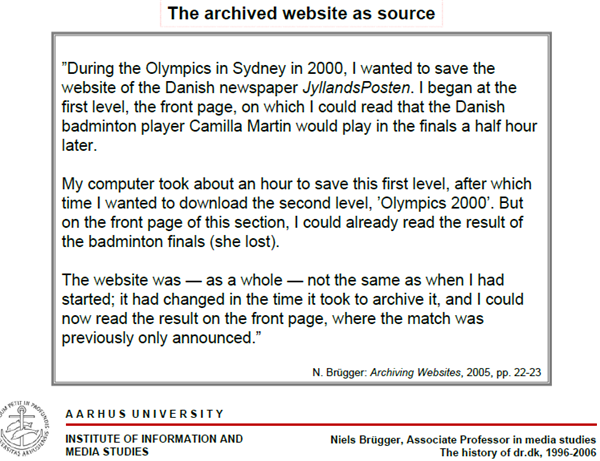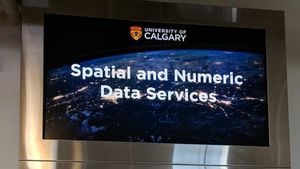Presentations from the JISC conference last week are now available on the website.
I attended the session on web archiving and was struck by the presentation by Niels Brügger (PDF of session here; he begins at page 64). Kevin Ashley’s overview of institutional issues and Paul Cunnea’s discussion of national web-archiving issues were also interesting.
Brügger’s perspective was that of a web historian, who uses the contents of web archives as historical documents. This raises interesting evidential issues as technical and policy choices mean that archived and original website are not identical. Here is the abstract from an earlier article which gives a flavor of the topics addressed.
Website history can be considered an emerging discipline at the intersection between media history and Internet history. In this discipline, the individual website is regarded as the unifying entity of the historical analysis rather than the Internet or the Web. Writing the history of a website involves using many sources and methods similar to those used in writing the history of any other media type. But one document type requires special attention: the archived website. This is so because the problems involved in finding, collecting and preserving the website are different from those characterizing the archiving of other types of traces of human activity, including other media types. The primary problem is that the actual act of finding, collecting and preserving changes the website that was on the live web in a number of ways, thus creating a unique version of it and not simply a copy. The present article sets out, first, to discuss to what extent the archived website can be considered a new type of historical document and how its characteristics affect the task of the website historian who must later use it; second, the article discusses and attempts to formulate some methodological principles, rules and recommendations for a future critical textual philology of the website. [Niels Brügger]
And here is a practical example he discussed …




